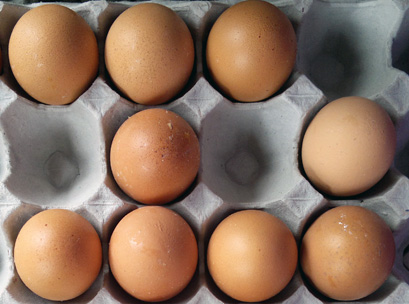 Consumer advocacy group, Choice, has today released a report which has found that 213 million eggs sold in Australia last year under the ‘free range’ label failed to meet consumers’ expectations of the free range claim and fell short of the national model code of practice.
Consumer advocacy group, Choice, has today released a report which has found that 213 million eggs sold in Australia last year under the ‘free range’ label failed to meet consumers’ expectations of the free range claim and fell short of the national model code of practice.
The report, which also found consumers pay nearly double the amount for free range eggs compared to caged, has been released ahead of a meeting of state, territory, and federal ministers on Friday that will decide whether to progress a national free range egg standard.
“If you are paying extra for eggs labelled ‘free range’ today, the sad fact is you are most likely being misled and ripped off,” said Choice director of campaigns and communications, Matt Levey.
“Many consumers are paying extra assuming hens are staying in the equivalent of a comfortable bed and breakfast but instead they’re stuck in a crowded backpacker hostel. We need a national standard so that anyone claiming to sell ‘free range’ eggs has to meet minimum requirements,” Levey says.
Choice’s research found that some of the largest egg brands including Pace Farm, Farm Pride, Manning Valley, Woolworths, and Coles –have stocking densities that are at odds with consumers’ expectations and the model code of 1500 birds per hectare.
The consumer group says that Friday’s ministerial meeting will have the opportunity to end the free-range rip-off, which currently sees some of the largest-scale producers charge the highest prices.
“We could only find stocking densities for 35 of the 55 free range products investigated – and only 17 of those were on the carton – showing there is a massive information gap,” Levey said.
“Stocking densities ranged from 185 to 10,000 hens per hectare. Despite this extreme variation, there was no absolute correlation between the price of eggs and the stocking density. It looks like some businesses are hoping to cash in on consumer demand for genuine free range eggs without delivering for hens.
“While the ACCC has taken a number of producers to court in a bid to define what free range isn’t, an enforceable national standard would be an efficient and simple way to level the playing field and remove industry and consumer confusion.
“Consumers want labels that make sense and deliver on their promises. Eighty four per cent of egg buyers agree that a mandatory national standard is needed while only two per cent did not believe there should be a standard,” Levey said.















